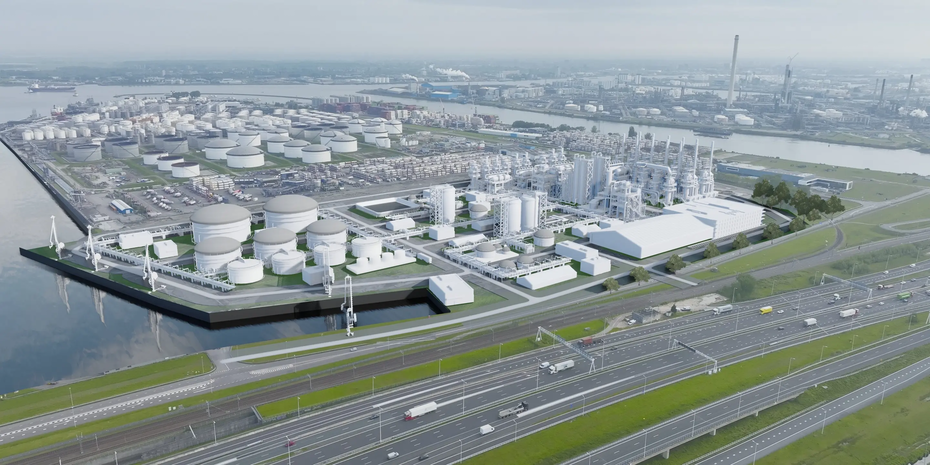
The Rotterdam facility will use locally produced green hydrogen and imported methanol produced from green hydrogen and biogenic carbon as feedstock to create electrofuels (eFuels). These eFuels are a class of synthetic fuels that can help displace a portion of fossil fuels.
eFuels combine green hydrogen (i.e., hydrogen produced from renewable energy and water) and carbon dioxide to create eMethanol, which can then be converted into sustainable fuels like eSAF or other synthetic drop-in fuels. The project underscores how technology is shaping the future of aviation and the energy transition, two megatrends that align with Honeywell’s portfolio.
"Accelerating the energy transition requires developing next-generation energy assets at an industrial scale and deploying cutting-edge technology to unlock new value chains, delivering clean energy where it's most needed,” said Occo Roelofsen, CEO of Power 2X. “Our collaboration with Honeywell on eFuels Rotterdam marks a significant step forward in producing Sustainable Aviation Fuels in the heart of Europe."
The Power2X production facility will have the capacity to produce more than 250,000 tonnes per year of eSAF, a non-fossil, synthetic fuel made from green hydrogen. Honeywell’s eFining technology will play a central role in production, enabling the conversion of methanol into eFuels with low emissions and high efficiency.
"The world needs a greater supply of sustainable aviation fuel in order to help decarbonize the aviation sector," said Barry Glickman, vice president and general manager of Sustainable Technology Solutions at Honeywell. “Honeywell’s eFining technology uses hydrogen and carbon dioxide, two abundant, low carbon feedstocks, to produce SAF that helps airlines meet ambitious European fuel mandates.”
Honeywell UOP eFining can reduce greenhouse gas (GHG) emissions by 88% compared to conventional jet fuel.1 When blended with conventional jet fuel, eSAF is a drop-in replacement fuel that requires no changes to aircraft technology or fuel infrastructure.
Europe’s ReFuelEU Aviation Regulation has already mandated the increased use of SAF, including eSAF, from 2030 onwards. In alignment with this mandate, Power 2X’s facility is a crucial player in Europe’s energy transition as it has the potential to supply 40% of the required eSAF volume when it enters operation around the turn of the decade.
Honeywell's SAF technologies are licensed at over 50 sites globally, with a projected daily capacity of over 500,000 barrels of renewable fuel per day when fully operational.2 Honeywell's renewable fuels portfolio also includes its EcofiningTM, FT UnicrackingTM and Ethanol to Jet technologies to help create next-generation fuels.